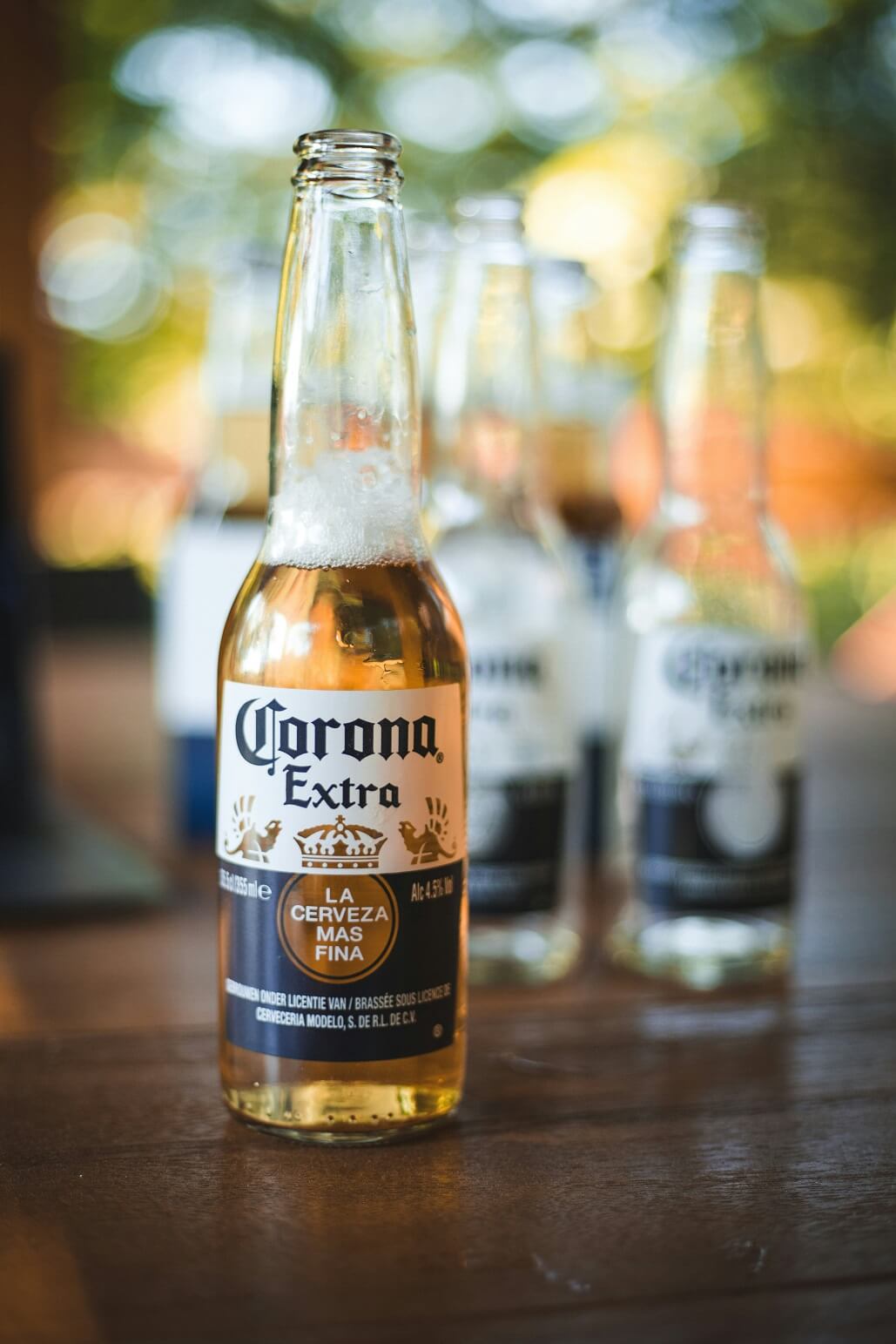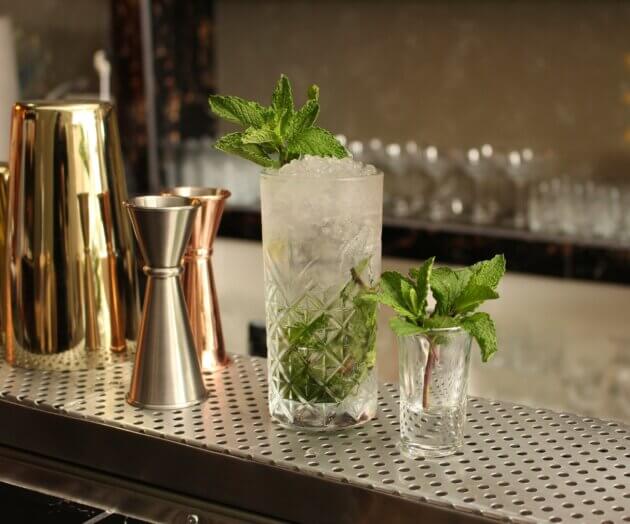More and more people are opting for a vegan lifestyle for ethical reasons. But what about alcoholic beverages? Can you be sure that wine, beer and co. are vegan? In this article, you’ll find out everything you need to know about vegan alcoholic drinks – from the ingredients used to practical tips and delicious recipes.
What makes some alcoholic drinks non-vegan?
Although the main ingredients such as grapes for wine or barley, hops and malt for beer are plant-based, animal substances are often used either as direct ingredients and additives or as adjuvants. These are mostly used for “fining” or “clarifying”, i.e. filtering out turbidity and are removed after production, but leave traces behind. These animal additives include
- Gelatine: An animal protein made from skin and bones.
- Isinglass: Dried swim bladder of fish.
- Casein: A milk protein.
- Albumin: Is contained in the egg yolk.
- Honey: Sometimes used in flavored spirits.
- “True carmine” (E120): A red colorant from scale insects.
- Lysozyme: Is an enzyme that is obtained from protein.
The legal situation and its pitfalls
In the European Union, alcoholic beverages with an alcohol content of 1.2% or more by volume do not have to have a list of ingredients – only beer is exempt from this. Only allergenic substances such as milk or eggs are indicated on the label in the form of “contains…”. This makes it difficult for consumers to identify animal substances.
“
I think if life has given you lemons, you should make lemonade and find someone who has been given vodka so you can have a party together.
Ron White
Beer
Beer brewed in Germany and Austria is vegan due to the applicable purity law. Only the following ingredients are permitted: water, hops, barley and yeast.
The German Brewers’ Association states on its website: “German beers are […] vegan. No animal substances are used in the production of beer. The Provisional Beer Act, which is based on the Purity Law, and the Beer Ordinance provide clear guidelines for the production of beer, according to which animal substances such as gelatine or isinglass are not permitted.”
The Austrian Food Code states: “Beer is a beverage made from cereals, hops and drinking water by mashing and boiling, fermented by yeast, containing alcohol and carbon dioxide. ” No additives may be added.
You should be careful with foreign beers, as these could traditionally be clarified with animal aids such as isinglass. However, there are exceptions such as:
- Heineken: Heineken is a Dutch company with over 150 years of history. It is probably one of the best-known beer brands in the world and is completely vegan.
- Amstel: The Amstel brewery was founded in Amsterdam, the Netherlands, in 1870. The “Amstel Light” and “Amstel Radler” beers are also vegan.
- Desperados: A well-known French beer that is mainly enjoyed in summer and is 100% vegan.
- Guiness: Since August 2016, the Irish beer brand has once again been producing beer using the original brewing method and is therefore vegan again.


Wine, sparkling wine and co.
Wine and sparkling wine are also often clarified with so-called additives, i.e. animal substances, in order to filter out cloudy substances and stabilize the taste of the wine.
No animal substances are used in the clarification of vegan wines. Instead, mineral substances such as bentonite and vegetable proteins obtained from peas, beans or potatoes are used. These vegan additives ensure a clear and pure wine quality.
To be sure whether a wine is vegan, you should look out for the following terms, labels and markings:
- The inscription: “Suitable for vegans”
- V-Label of the European Vegetarian Union
- Vegan flower from the Vegan Society of England
If you are looking for vegan Austrian wine, then I can recommend the wineries: Allacher, Fürnkranz and Salomon recommend.
Are vegan wines better?
There is only one clear answer to the question of whether vegan wines are better: No! Because vegan wine is no different from other wines – apart from the choice of fining agents. Neither are better grapes used, nor does the wine production process differ in any other respect.

Spirits and cocktails
High-proof alcohol produced using animal ingredients is the exception rather than the rule. For the filtration of spirits, substances such as gelatine or milk protein are largely avoided and technical solutions are used instead. Most distilled spirits are therefore vegan, including
- Vodka
- Rum
- Fruit brandy
- Liqueur
- Gin
- Cognac
- Brandy
- Whisky
- Calvados
- Tequila
But be careful:
- Egg liqueur
- Cream liqueur
- Rum or whisky with honey – honey is not vegan!
There can also be surprises with cocktails. Ingredients such as Worcester sauce or certain syrups and lemonades are often not vegan. It is therefore advisable to mix cocktails yourself or ask the bartender.
Vegan cocktail recipes
If you still want to make your own cocktail, I have two simple recipes for you here:
Vegan mojito
Ingredients:
- 60 ml white rum (vegan)
- 30 ml lime juice
- 2 tsp sugar
- 6-8 fresh mint leaves
- Soda
- Ice cubes
Preparation:
- Lightly crush the mint leaves and sugar in a glass.
- Add the lime juice and rum.
- Fill the glass with ice cubes and top up with soda.
- Stir well and garnish with a sprig of mint.
Vegan piña colada
Ingredients:
- 60 ml white rum (vegan)
- 90 ml coconut milk
- 90 ml pineapple juice
- 1 teaspoon agave syrup
- Ice cubes
Preparation:
- Put all the ingredients in a blender.
- Mix well until a creamy consistency is achieved.
- Pour into a chilled glass and garnish with a slice of pineapple.

Tips for shopping
- Make product inquiries: Many manufacturers will provide information about the vegan production of their products on request.
- Use apps: These help to quickly identify vegan products.
- Read labels carefully: Even if not all ingredients are listed, allergens can provide information.
- The shopping guide from PETA lists various vegan drinks brands in the “Drinks” section.
- Use online databases: The platform Barnivore platform currently contains almost 60,000 entries on vegan beer, wine and spirits of all kinds and is constantly being expanded.
Health aspect
It is not only for ethical reasons that we should be careful about alcohol consumption. Alcohol has considerable health risks, such as damage to the liver and nerves or the risk of mental disorders and cancer. The WHO therefore recommends a maximum intake of 10 g of alcohol per day for women and 20 g for men.
Even though the vegan lifestyle can be a challenge when it comes to consuming alcoholic beverages, there are numerous ways to find and enjoy vegan alternatives. Conscious consumption and targeted product inquiries can help you make animal-free and healthy choices.
Disclaimer: This text is in no way a substitute for professional advice from a doctor or pharmacist and must not be used as a basis for independent diagnosis or for starting, changing or stopping treatment of illnesses. Always consult a doctor you trust if you have any health questions or complaints! Greentrinsic accepts no liability for any inconvenience or damage resulting from the use of the information presented here.




